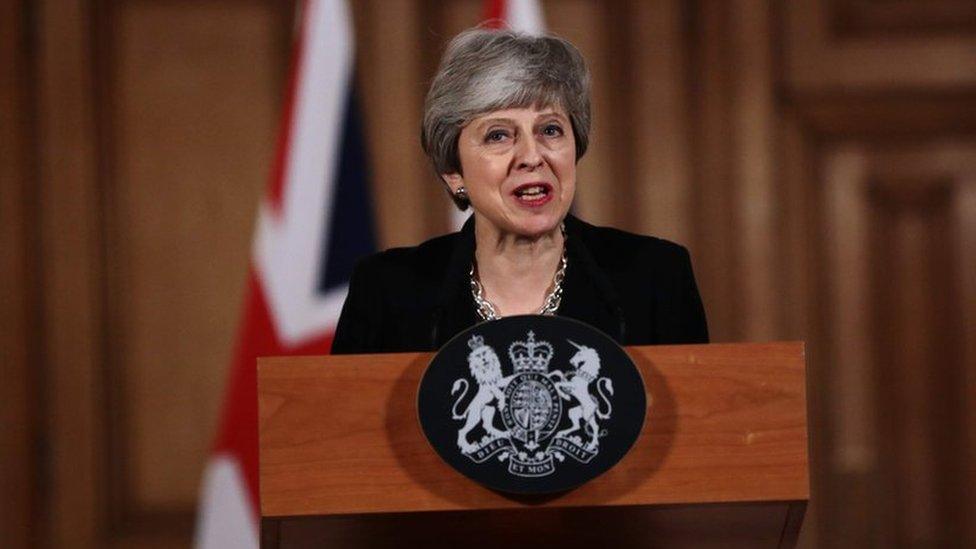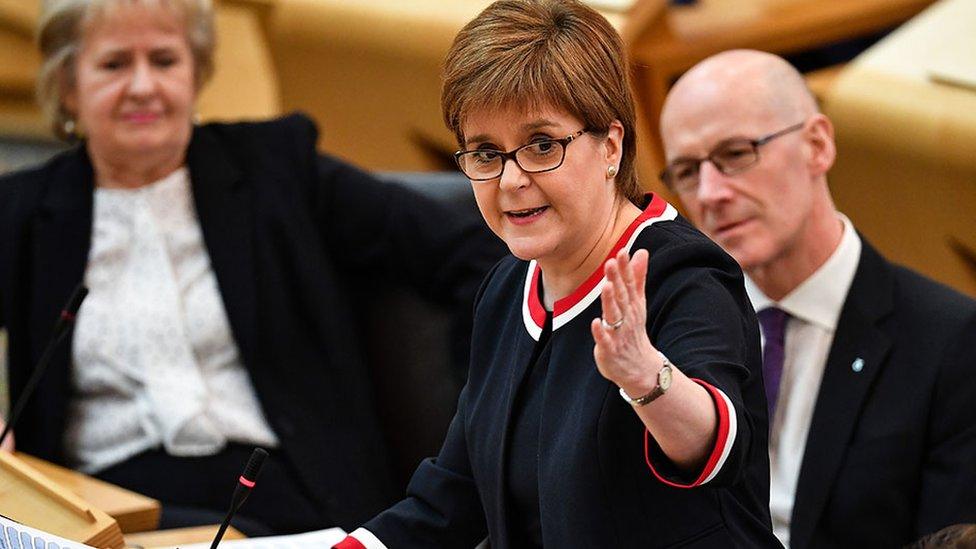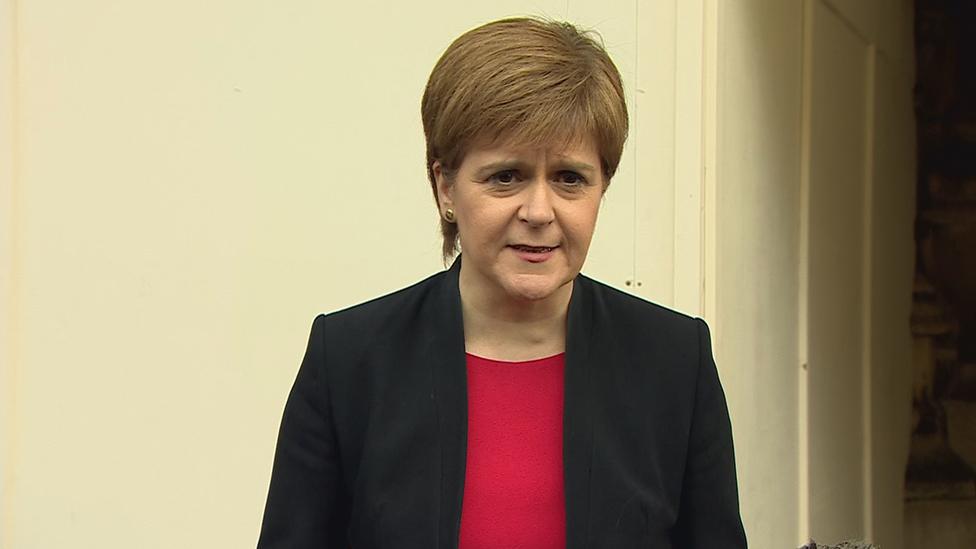Brexit: Nicola Sturgeon warns about 'bad compromise'
- Published
- comments
Nicola Sturgeon: "In the rush to reach some compromise with the clock ticking, what will happen over the next few days..... is that a bad compromise will be reached. "
Scottish First Minister Nicola Sturgeon has warned against accepting a "bad compromise" after holding Brexit talks with Theresa May and Jeremy Corbyn.
Political leaders have been meeting in London in a bid to break the logjam over the UK's exit from the EU.
The prime minister is to ask the EU for another extension to the Brexit deadline while she attempts to come to an agreement with the Labour leader.
Ms Sturgeon urged Mr Corbyn to be "very wary" about signing up to a "bad deal".
Mrs May reached out to Mr Corbyn after failing to win backing for her proposed Brexit plan, which has suffered three defeats in the Commons, and MPs failed to unite around any alternative during a series of "indicative votes".
Talks between Mrs May and Mr Corbyn on Wednesday afternoon were described as "constructive" by both sides.
But speaking immediately after her own meeting with the prime minister, Ms Sturgeon said she was "not much clearer on where she (Mrs May) is prepared to give ground".
She added: "I suppose overall my concern is that in the rush to reach some compromise with the clock ticking, what will happen over the next few days - if anything - is that a bad compromise will be reached.
"People will probably heave a sigh of relief that some agreement has been reached, but then very quickly realise that it's not in the interests of the UK.
"It will satisfy no one, and of course would be open to being unpicked by a prime minister that is not Theresa May, perhaps somebody like Boris Johnson.
"So I think there's a need to be wary. If I was in Jeremy Corbyn's shoes right now I would be very wary about signing up to anything that may not be able to be delivered, in fact may not be enough in the first place."

Mrs May made a statement at Downing Street on Tuesday offering talks with Labour leader Jeremy Corbyn
Ms Sturgeon said she had felt Mr Corbyn "would drive a hard bargain" after meeting him - but that the prime minister had later given the impression that "she thinks she's got Jeremy Corbyn closer to a deal".
The SNP leader said the UK should ask for a longer extension to Brexit, and that any compromise deal that is ultimately hammered out should be put back to the public in a new referendum, with remaining in the EU also as an option.
The UK's departure from the EU was put back from 29 March to 12 April following a summit of European leaders late in March.
If MPs or ministers cannot come up with an exit plan which is accepted by the EU, then the UK will leave without a deal.
'Delay and division can't continue'
Mrs May said on Tuesday that she would ask the EU for a further extension, to be kept "as short as possible", and arranged talks with Mr Corbyn to agree a new approach.
But she insisted her withdrawal agreement - which was voted down last week - would remain part of the deal.
Following her meeting with Ms Sturgeon, a Downing Street spokeswoman said Mrs May had "made clear that this delay and division across the UK cannot continue".
The spokeswoman added: "She is meeting with the leader of the opposition to find a proposal that can command the support of the House of Commons to allow the UK to leave the EU as soon as possible.
"She added that Brexit is a decisive moment in our history and we must come together to deliver for people in Scotland and the whole of the UK."
A Labour spokesman said: "We have had constructive exploratory discussions about how to break the Brexit deadlock.
"We have agreed a programme of work between our teams to explore the scope for agreement."
Meanwhile, Holyrood's Presiding Officer Ken Macintosh confirmed that the Scottish Parliament would be recalled from recess if the UK is heading for a no-deal Brexit on 12 April.
- Published2 April 2019

- Published3 April 2019

- Published2 April 2019
